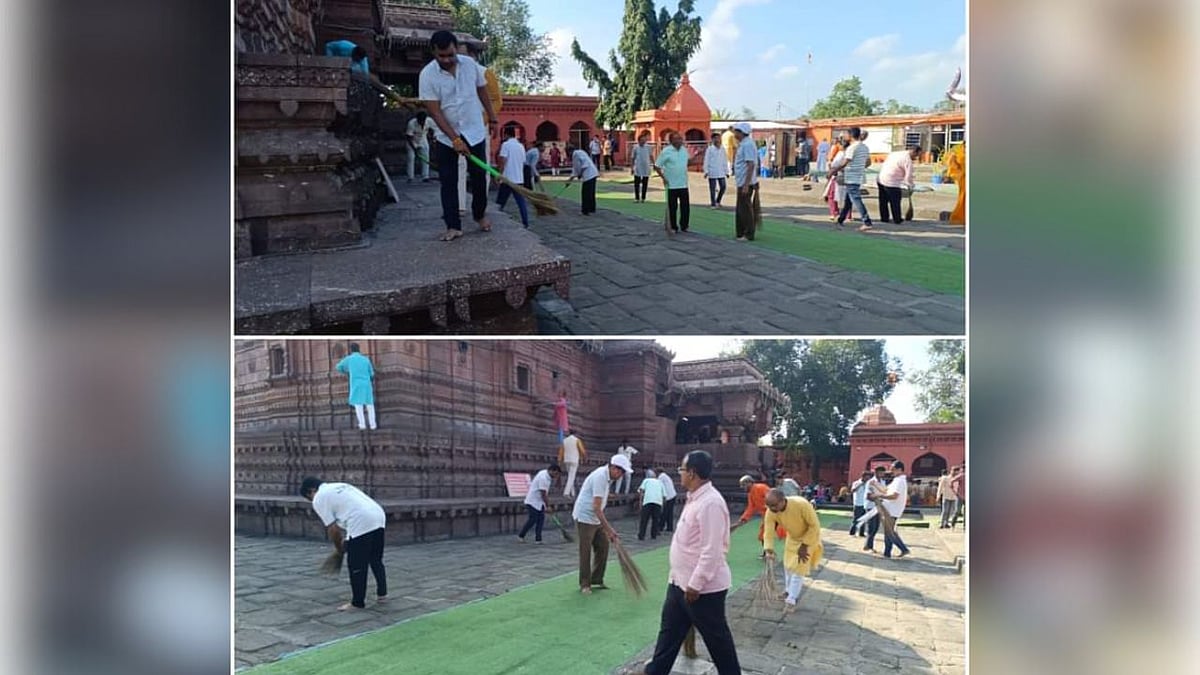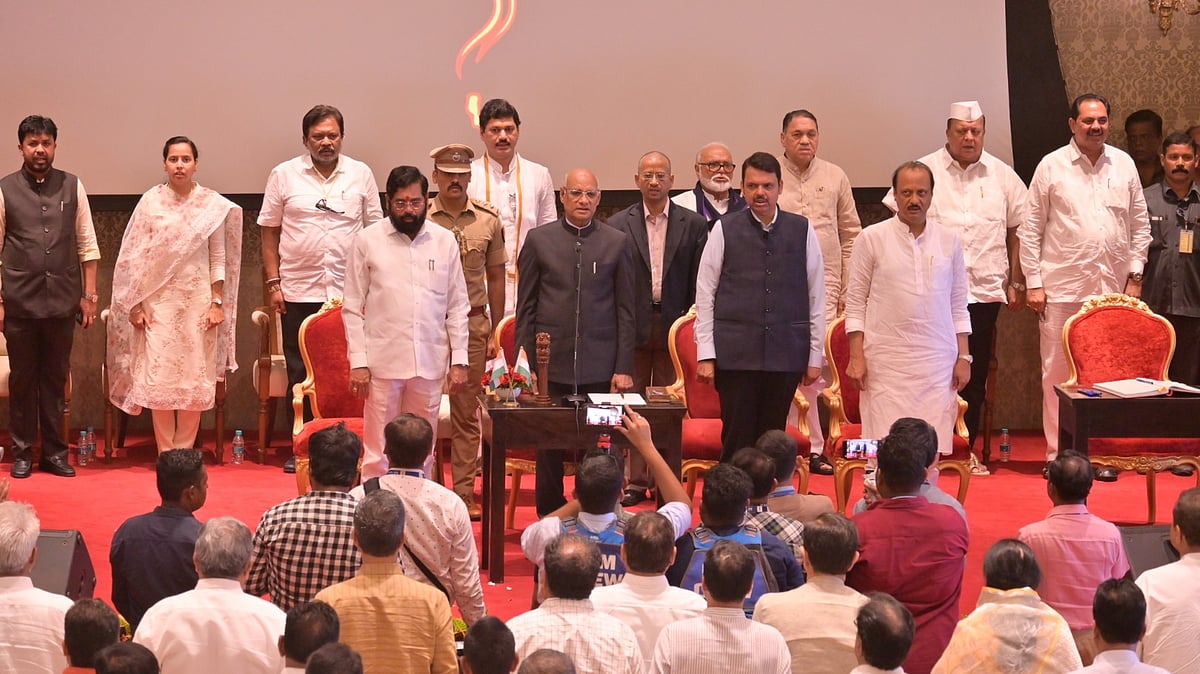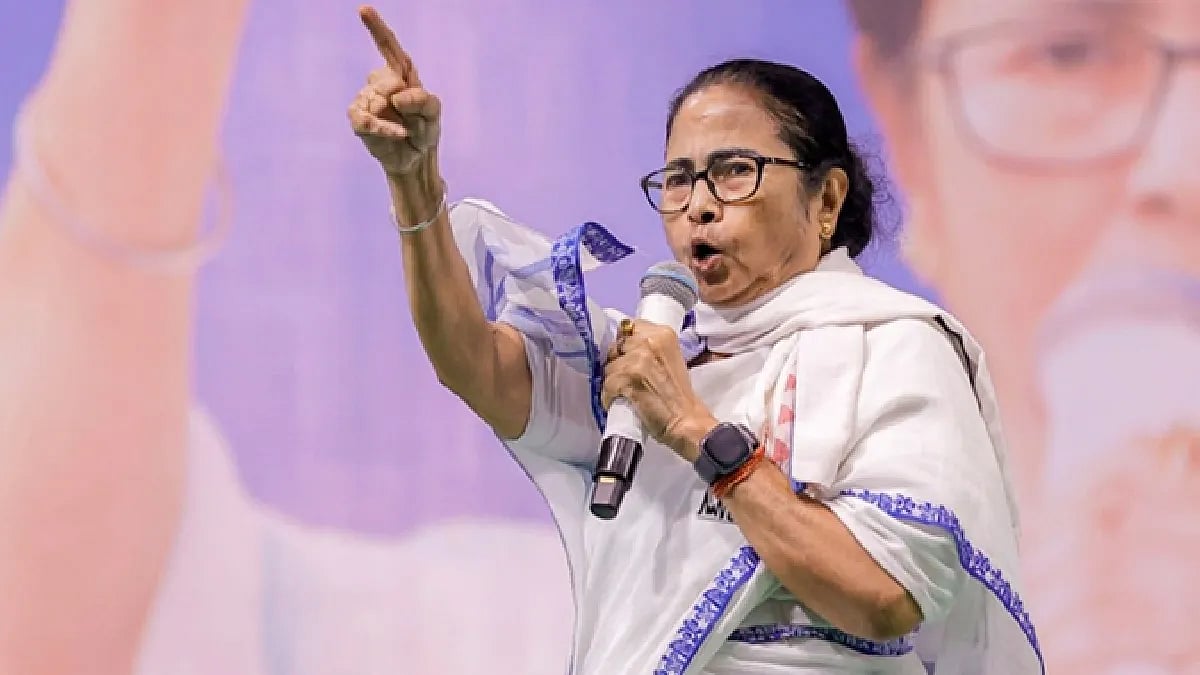In a stunning turn of events, the recent decision by senior Nationalist Congress Party leader Ajit Pawar, nephew of NCP patriarch Sharad Pawar, to join the Shiv Sena-BJP government in Maharashtra has undoubtedly left many in a state of bewilderment. Politics, a captivating game of uncertainty, has once again taken centre stage with the recent tumultuous manoeuvre orchestrated by junior Pawar and his cohorts. In the aftermath, the public finds itself engrossed in a relentless pursuit of answers. Did Sharad Pawar possess prior knowledge? How significant was this political coup? And, most importantly, what implications does it hold for the BJP?
In the realm of politics, the act of defection has become so prevalent that it seems to have lost its ability to evoke widespread condemnation. With the exception of a few Opposition parties, there appears to be a lack of consensus when it comes to denouncing this phenomenon. The question then becomes, Who will protect democracy? It is evident that the legislature, being deeply entrenched in the issue of defection, is unlikely to take any meaningful action. This unfortunate reality necessitates that the judiciary exhibit a pragmatic approach to end this deplorable practice and uphold the principles of democracy.

In a bid to quell the rampant issue of political defections and foster a climate of political stability and accountability, the Indian Constitution saw the birth of the Anti-Defection Law in 1985. Officially known as the Tenth Schedule, this legislative measure sought to address the pressing concern of politicians switching allegiances at will. Its primary objective was to instill a sense of loyalty and commitment among elected representatives, thereby ensuring a more steadfast and reliable political landscape. The rule was enacted as a response to the growing problem of unethical party-hopping, which threatened democratic ideals and damaged public confidence in the political process. In light of the ever-evolving landscape of Indian politics, there arises an imperative need to fortify the Anti-Defection Law, thereby ensuring its efficacy in safeguarding the sanctity of democratic institutions and upholding the essence of representative governance.
The Anti-Defection Law, a crucial piece of legislation in the context of democracy, stands as a bulwark against the perils of opportunistic defections. Its primary aim is to safeguard the very essence of democratic principles. In a disheartening display of self-interest and opportunism, political defections continue to plague our democratic landscape, eroding the very fabric that holds our nation together. Such betrayals not only undermine the trust of the electorate but also compromise the principles upon which our democracy stands.

In a stunning turn of events, the recent political upheaval in Maharashtra has shed light on a glaring disregard for the anti-defection law among prominent parties such as the Shiv Sena and the NCP. As these parties seemingly crumble in their efforts to bolster the BJP government, it becomes increasingly evident that the sanctity of this crucial legislation holds little weight in the minds of our political leaders. Regrettably, it appears that the Speaker of the House and governors have formed a cohesive alliance, coordinating their efforts to facilitate such acts of defection. In a resounding verdict, the Supreme Court has shed light on the questionable actions of governors and speakers in the Shiv Sena case. The ruling clearly highlights the illegalities that have transpired in this particular situation.
By strengthening the law, we can improve the democratic process, thereby fostering stable governments based on party discipline, ideological coherence, and the will of the people. Political stability is necessary for the efficient operation of a democracy. Frequent defections and the overthrow of administrations destabilise the political landscape, hinder governance, and impede the implementation of policies. A strong Anti-Defection Law will deter politicians from switching parties solely for personal or political benefit, promoting stability and allowing elected representatives to concentrate on their legislative duties.

In the context of political defections under the current regime, it is crucial to recognise yet another noteworthy factor at play: the growing ideological fluidity among politicians. In the realm of politics, a disheartening trend has emerged, one that exposes the wavering commitment of our elected officials to their proclaimed principles. It appears that the pursuit of personal gains and the desire to secure their own political survival have taken precedence over the steadfastness required to uphold their professed ideologies. In the ever-evolving political landscape of India, one cannot help but be captivated by the meteoric ascent of the Bharatiya Janata Party (BJP) and the charismatic leadership of Prime Minister Narendra Modi. This unprecedented rise has not only piqued the interest of politicians hailing from various backgrounds, but has also managed to lure in members from the Congress party, regional factions, and even dissident voices within the BJP itself. In the realm of politics, it is a well-known truth that the allure of power and the accompanying perks that come with being a member of the ruling party can often overshadow any ideological disparities. This phenomenon gives rise to a rather intriguing and, some might argue, opportunistic form of political manoeuvring.
In these critical times, it is imperative that we prioritise the preservation of our democracy. In an era plagued by scepticism and disillusionment, one cannot help but question the unwavering commitment of politicians to protect the very essence of our democracy. Doubt, it seems, has become an unwelcome companion in the minds of the people. The once unshakable belief in the noble intentions of our elected officials now wavers, leaving us to ponder the true motives that drive their actions. In the realm of Indian politics, a disheartening reality has come to the fore - the absence of any discernible political ideology, unwavering political loyalty, genuine commitment to national progress, and a dearth of honesty and integrity among our esteemed politicians. A depressing reality has emerged in a country that has benefited from the presence of stalwart politicians like Mahatma Gandhi, Jawaharlal Nehru, Atal Bihari Vajpayee, Jayaprakash Narayan, and many others. The very fabric of this country is now unravelling as politicians devoid of any sense of responsibility towards the state and its people have taken centre stage. In the current landscape, it appears imperative to safeguard our democracy by calling for the intervention of the judiciary. This intervention would establish a robust precedent against defections, thereby holding the legislature accountable for enacting more effective laws to curb such occurrences.
The author is a visiting professor of journalism, a political columnist, and a doctoral research scholar. He tweets at @sayantan_gh. Views are personal











